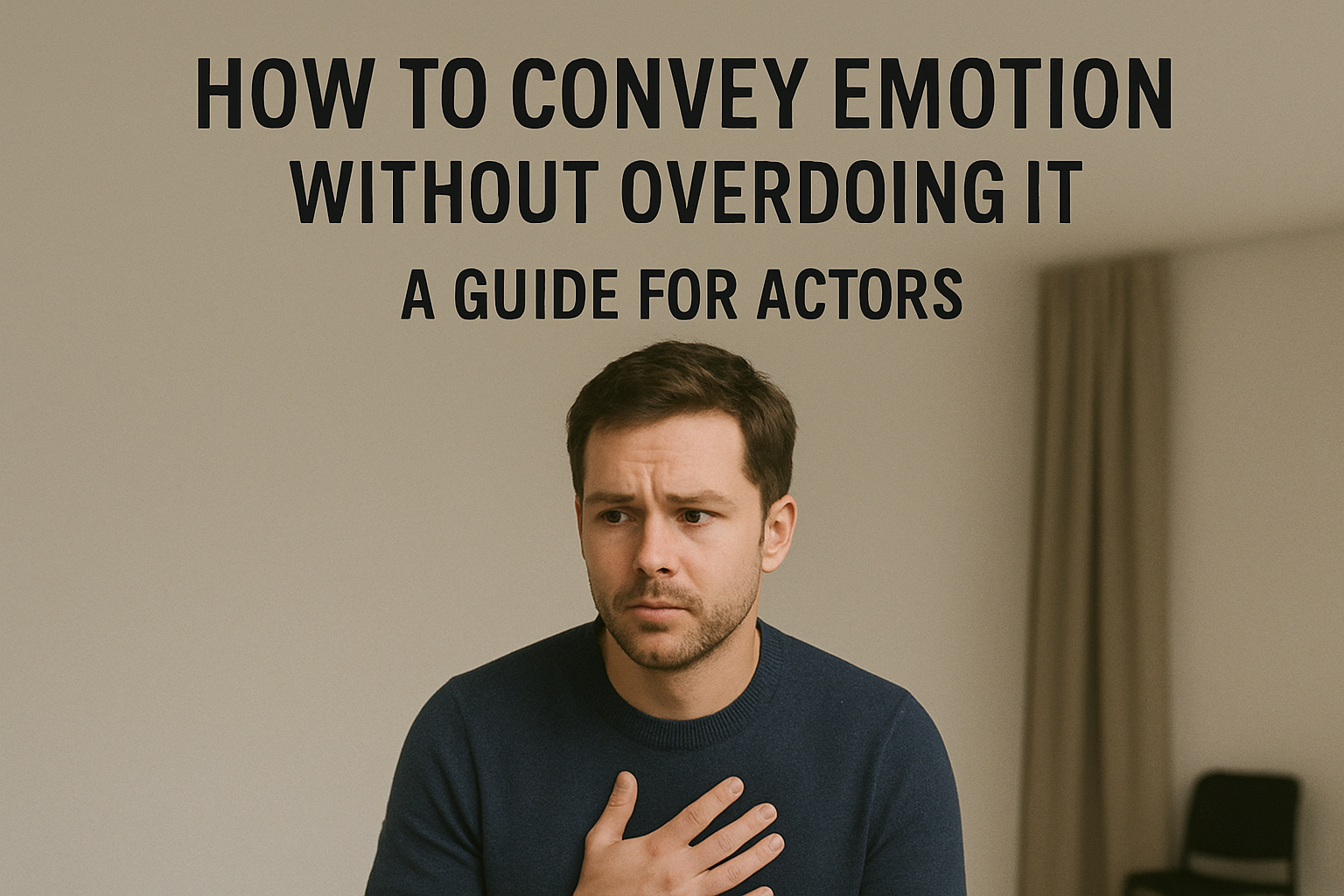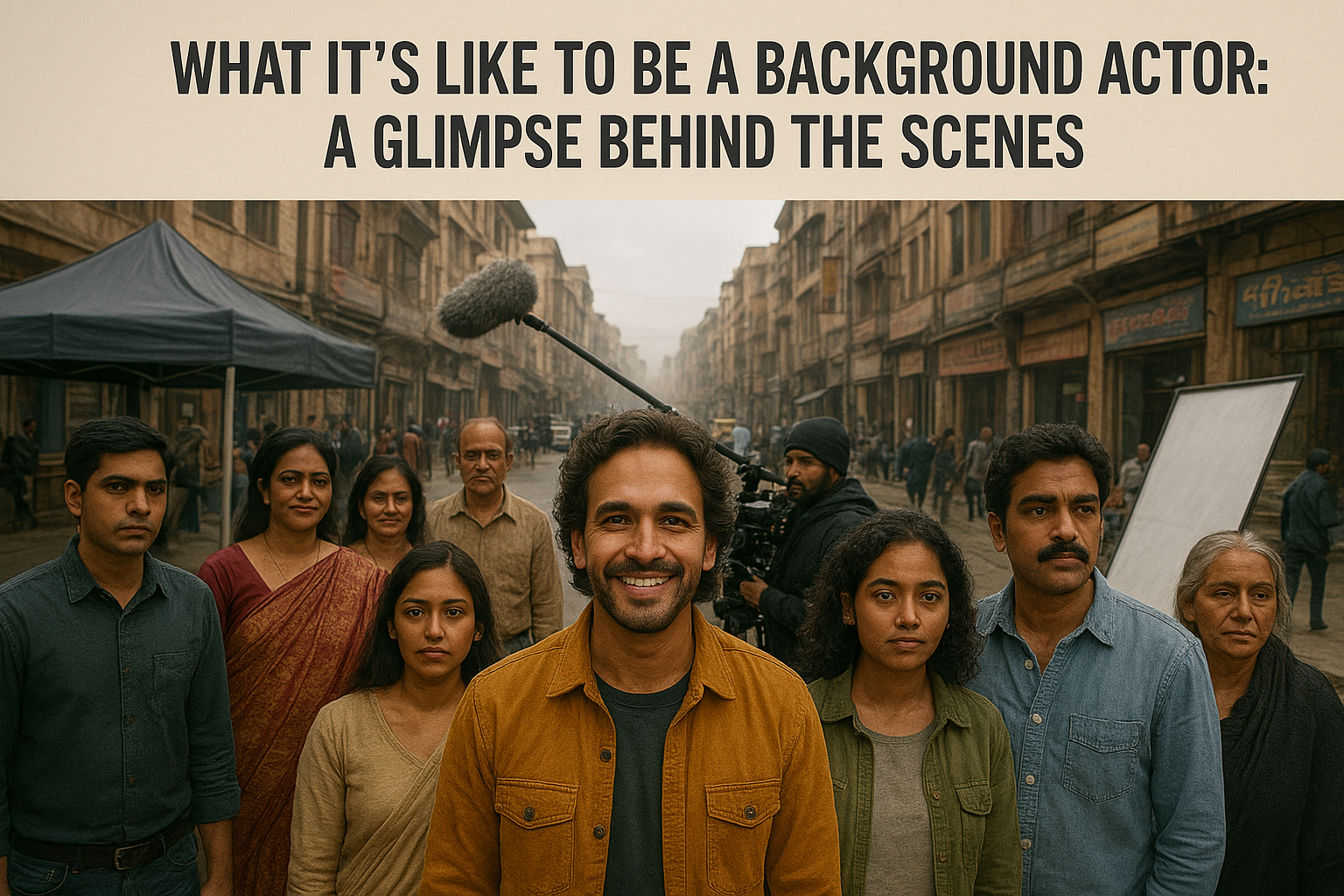
Getting into acting is hard — but succeeding as a freelance actor might be harder. Without the support of a large agency, production company, or manager, you're basically a sole proprietorship. You're the product, the marketer, the promoter, and the brand.
So how do you become visible? How do you promote yourself as a freelance actor among so many talented individuals?
Whether you're new to the game or wanting to level up, this guide will take you through essential strategies to create visibility, bring in opportunities, and establish yourself as a player in the cutthroat industry of freelance acting.
1. Establish Your Brand as an Actor
You cannot sell what you do not know. That is, before you sell, you must know what you are selling. That is, establish your actor brand.
Ask yourself:
What kind of roles am I best at?
What is my distinctive personality or energy on camera?
Do I lean toward comedy, drama, action, indie, commercial?
What do casting directors observe about my look or presence?
Your brand isn't about exclusivity — it's about beginning with focus. Clarity makes you simpler to cast and simpler to recall.
Pro tip: Craft a one-liner that defines your type. Example: "I'm a crisp, expressive actor with a knack for emotionally charged characters."
2. Build a Professional Portfolio
Your portfolio in the world of freelancing is your goldmine. It must feature:
Headshots: Professional, high-quality, and up-to-date. Get various looks (commercial, theater, character-specific).
Showreel: A 1-2 minute compilation of your strongest work. Edit cleanly, demonstrate range, and begin with your strongest clip.
Resume/CV: List roles, training, special skills, and contact information. It must be one page.
Online presence: Personal website or portfolio link (more on that below).
Ensure that all elements of your portfolio reflect your brand and highlight your strengths.
3. Create a Personal Website
Even a basic site will put you way ahead. It's your online business card and makes you appear more professional.
Your website should have:
Bio and headshots
Showreel and clips
Resume and training
Contact form or agent contact
Social media links
4. Leverage Social Media Strategically
Like it or not, social media is part of modern marketing. Use it to:
Share your work (clips, behind-the-scenes, training)
Engage with industry professionals
Show your personality and values
Announce gigs, auditions, or appearances
Prioritize sites such as Instagram, LinkedIn, and YouTube for professional exposure. Resist excessive sharing of personal drama — remain on-brand.
Tip: Employ hashtags such as #actorlife, #castingcall, #indiefilm, or location-based tags (e.g. #MumbaiActors, #NYCActing) to increase reach.
5. Become a member of Casting Websites and Apps
There are several dozen casting sites where freelance actors receive opportunities every day.
Build in-depth profiles, post your stuff, and apply regularly. These sites are competitive — make your submission professional and customized.
6. Network Like Your Career Depends On It (Because It Does)
In the acting world, who you know can literally get you in the door. Make real connections with:
Other actors
Directors and producers
Photographers and stylists
Writers and indie filmmakers
Go to workshops, film festivals, and industry parties. Be approachable, courteous, and memorable — without forcing your resume on everyone.
Join local acting co-ops or groups where individuals swap leads and opportunities.
7. Remain Visible and Active
The more regularly folks see your face, your work, and your grind, the more you remain top of mind for casting.
Blog (auditions, classes, performances) frequently. When you're between jobs, make your own content:
Short films
Monologues
Web series
Skits or reels
Become your own producer. The do-it-yourself method tends to result in actual work, since it proves initiative and ability.
8. Get Testimonials and Reviews
As with any freelancer, actors can use social proof. Ask directors, coaches, or co-stars to pen you brief testimonials or LinkedIn recommendations.
Share them on your website or acting profiles. This creates trust, particularly when you're seeking employment with people who don't yet know you.
9. Continuously Train and Develop
Your talent is your merchandise. Continue to hone it.
Take acting classes (scene study, voice, improv)
Attend workshops and masterclasses
Work with acting coaches
Acquire new skills (accents, martial arts, musical instruments, dance, etc.)
This not only makes you a better craftsperson, but demonstrates that you're committed to developing yourself — and that's appealing to casting directors and collaborators.
10. Treat It Like a Business
Being an independent actor isn't always art — it's business. Track:
Gigs and income
Invoices and taxes
Contracts and rights
Follow-ups with prospects or casting notices
Professional development objectives
Develop a system that is going to work for you — even a spreadsheet is good enough. Staying organized will help save you stress and keep your career on track.
Marketing yourself as an independent actor is time-consuming, hard work, and perseverance. But it's also empowering — because you're not sitting around waiting for someone to find you. You're generating your own momentum.
With talent plus clever marketing, you can establish a powerful personal brand, secure better work, and craft a career of your own design.
Be seen. Be professional. Be prepared. The next great opportunity may be one audition — or one message — away.
Among the tough battles actors face is how to find the most appropriate balance between emotion display and overacting, either on stage, on camera, or when going for auditions. Many performers fear that without adequate emotions, the moment will fall flat. On the other hand, if emotions are overt, the performance may become exaggerated or not true to life.
The entertainment sector is witnessing a huge shift, and the epicenter of this revolution is digital media. Those days are long gone when acting careers were reserved for silver-screen movies or television. Now, web series and digital media such as Netflix, Amazon Prime, Hotstar, YouTube, and MX Player have opened up the floodgates of opportunities for thespians. But what does it actually mean to be an actor in the digital age? Is it all that different from acting in the past? And why do web series prove so engaging as a platform for new and established performers?
Acting may be an art, but in the world of professional performance, it begins long before the cameras roll or the stage lights shine. It begins with the audition — the often nerve-wracking, unpredictable process that determines whether an actor even gets the chance to perform. For aspiring actors, understanding the relationship between auditioning and acting is not just important — it's essential. One feeds into the other, and together, they shape an actor’s growth, resilience, and ultimate success.
Most people think of the film and television business and immediately envision the stars—the leads whose names are emblazoned in large letters on posters and opening credits. But bringing every suspenseful courtroom drama, busy city street, and raucous restaurant scene to life are a legion of individuals who support them: background actors.
Lights Camera Audition!
Don't miss out on the latest updates, audition calls, and exclusive tips to elevate your talent. Subscribe to our newsletter and stay inspired on your journey to success!







